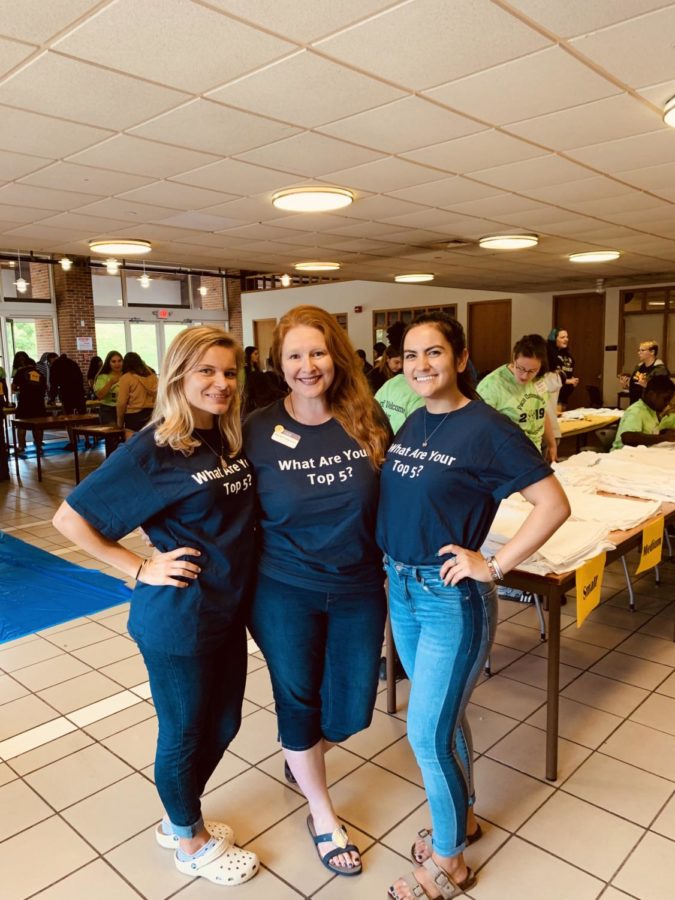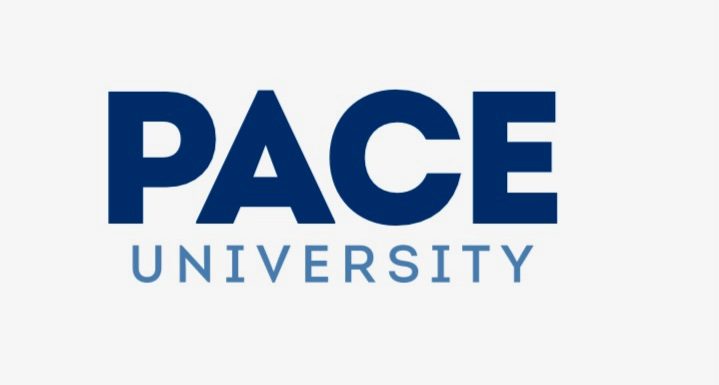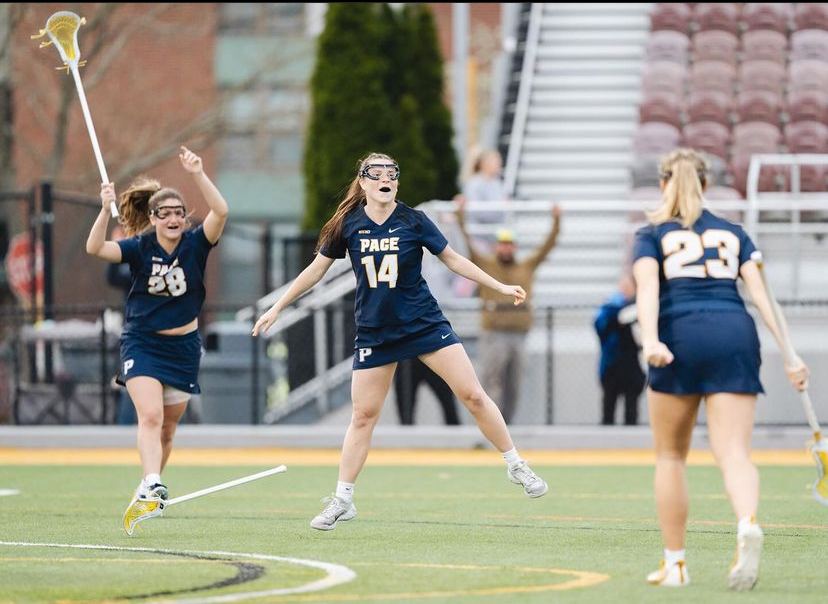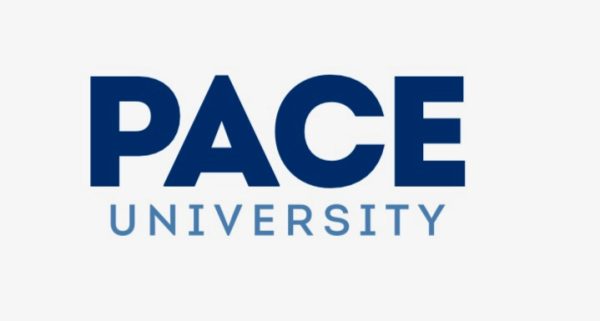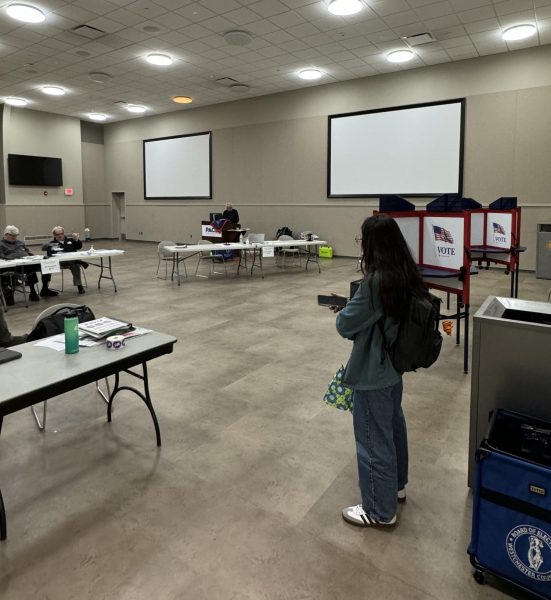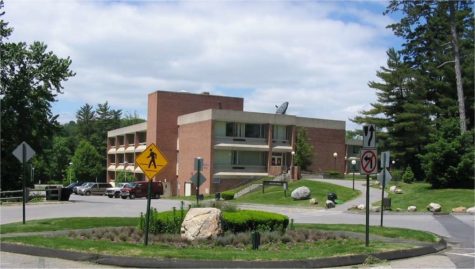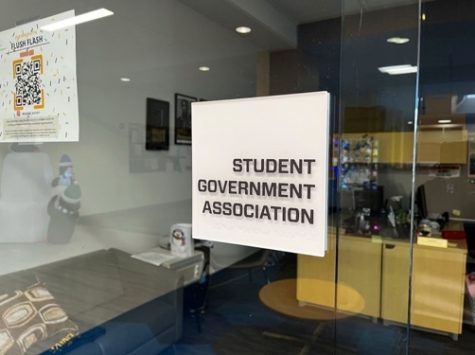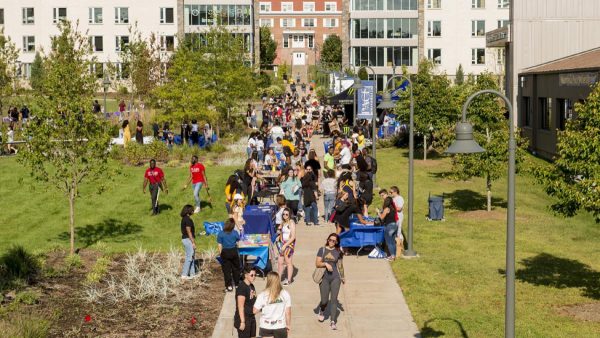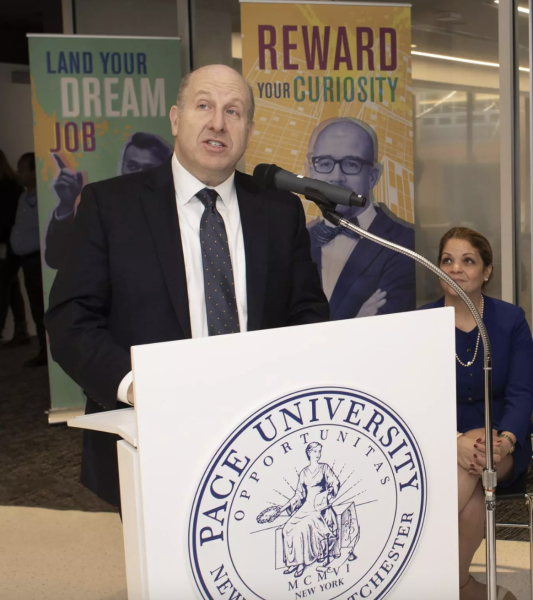New Peer Strengths Coaching Program launches next semester
Dean for Students Rachel Carpenter and two strengths interns at a strengths event during Week of Welcome.
December 7, 2019
Over the course of next semester, select students will train to be peer strengths coaches while the option to sign up for individual coaching with strengths will be open to all students.
At orientation, all incoming students take the CliftonStrengths assessment where they are then provided with their top five strengths out of the 34 total strengths that they possess. According to Gallup, the company that developed the CliftonStrengths, strengths “explain the ways you most naturally think, feel and behave.”
The staff has been looking at how to incorporate strengths to other aspects of college life after orientation.
“When we decided to launch [CliftonStrangths] at orientation, we started thinking, ‘Then what? How do you connect doing something at orientation with the rest of your four years if nobody else talks about it?’” said Dean for Students Rachel Carpenter. “That’s why we created the University 101 workshops that aren’t in 100% of the classes because it’s not part of the curriculum. It’s an option for instructors to invite us in.”
Carpenter is spearheading the implementation of peer strengths coaching. This coaching is to help students with goal-setting from a strengths perspective rather than to serve as a form of counseling. These coaching sessions can help students navigate common social and academic challenges of college life by utilizing the students’ strengths.
“Every student needs something different,” said Carpenter. “The golden rule is to treat others how they wish to be treated. What I like to call the platinum rule is to treat others how they wish to be treated. Strengths is a window into how others would like to be treated.”
This new program will offer benefits not only for the students being coached but also for the students who be the coaches. Carpenter emphasized the coaching skills—including active listening, awareness, and communication—that student coaches will gain and make them more marketable for jobs and internships.
To prepare for coaching, students will attend multiple training sessions. They will attend a coaching session with a professional staff member and shadow one coaching session with a professional staff member. After that, they will lead a coaching session with the help of a professional staff member.
There is no one way for students to be peer strengths coaches, especially when considering that each coach has their individual top strengths that influence how they approach coaching.
“Strengths give you a very individualized understanding of what motivates you, and also what demotivates you or makes you frustrated,” said Carpenter. “And I think that it’s a unique toolset for people to navigate both the positives in their lives and also the things that they find negative or challenging.”
Carpenter looks forward to more ways to incorporate strengths throughout campus life. One idea is to have student clubs and organizations have Carpenter or another strengths facilitator come in and give a strengths workshop relevant to that organization.
“I would challenge anybody, and I’m serious, send me, ‘Can you do strengths?’ and whatever comes after that, I am pretty sure if I can’t one of the other facilitators can,” said Carpenter.

